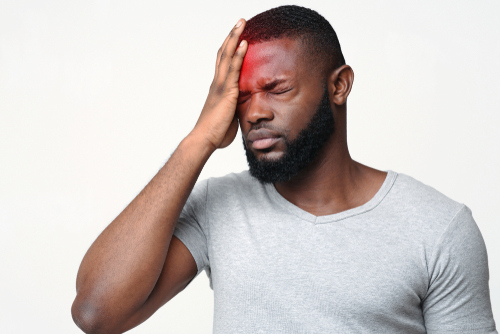
Stay Alert for Persistent Post-Concussion Syndrome
While most concussion symptoms dissipate over weeks and sometimes months, it’s imperative to stay alert for changes in mood, mental capacity, and physical symptoms. Every brain and every injury is unique, and the potential for persistent post-concussion syndrome is genuine. Overall, it’s estimated that one in five individuals who suffer a concussion will experience symptoms that persist for six weeks or longer. Thus, monitoring your health is essential for ensuring you receive the care you need and don’t exacerbate your injuries.
Concussion Symptoms To Monitor
Persistent post-concussion symptoms can include a broad range of ailments. This includes headaches and dizziness, physical and mental fatigue, anxiety, insomnia, and diminished cognitive function. Individuals may also experience persistent ringing in the ears, blurred vision, sensitivity to lights and sound, and in some cases, diminished taste and smell.
Understanding Why It’s Concerning
Post-concussion symptoms can indicate structural damage to the brain, nerve damage, or both. However, these are not always apparent in the immediate aftermath of a concussion, and they may become more evident as your body recovers.
They can also indicate more significant psychological injuries. These typically manifest as persistent headaches, loss of balance and dizziness, and insomnia. In many instances, individuals with significant psychological trauma, i.e., PTSD, also develop depression and anxiety; these can be magnified if the individual suffered from these conditions prior to the injury. In the United States, women and older individuals are more likely to develop persistent post-concussion syndrome.
Addressing Post-Concussion Syndrome
There is no magic pill or single treatment that can treat post-concussion syndrome. Rather, individuals may be required to undergo surgical procedures, physical therapy, or psychological counseling to address the underlying cause of each ailment.
Individuals who do develop post-concussion syndrome should exercise significant caution and modify their lifestyle to prevent exacerbating their injury. This includes avoiding activities that could cause secondary trauma: specifically contact sports, skiing, bicycle riding, etc. Individuals should also seek complete medical examinations and retain the services of a qualified mental health professional. The more cautious you are and the more comprehensive the medical care, the better the long-term outcome.
Do you have questions about concussion symptoms and your legal options for recovering compensation for your injuries in Colorado? Contact the legal team at Sloat, Nicholson & Hoover, P.C. We’re happy to provide a free consultation to give you the guidance you need to move forward.
Related Articles
Articles and information to keep you up to date on personal injury news.
The Importance of Medical Records in Personal Injury Claims
After a serious injury caused by someone else, medical care becomes more than just treatment—it becomes evidence. Every appointment, diagnosis, and test result documents the injury and how
Read More
How to Claim Lost Wages from a Car Accident
You’re injured, unable to work, and the bills are piling up after your car accident. Without a paycheck, balancing everyday expenses and medical costs feels impossible. How are
Read More
Back Injury from a Car Accident
Some injuries are impossible to ignore. What seemed like a minor ache after a crash can become constant painful discomfort, making everyday tasks harder. Sitting for long periods,
Read More
